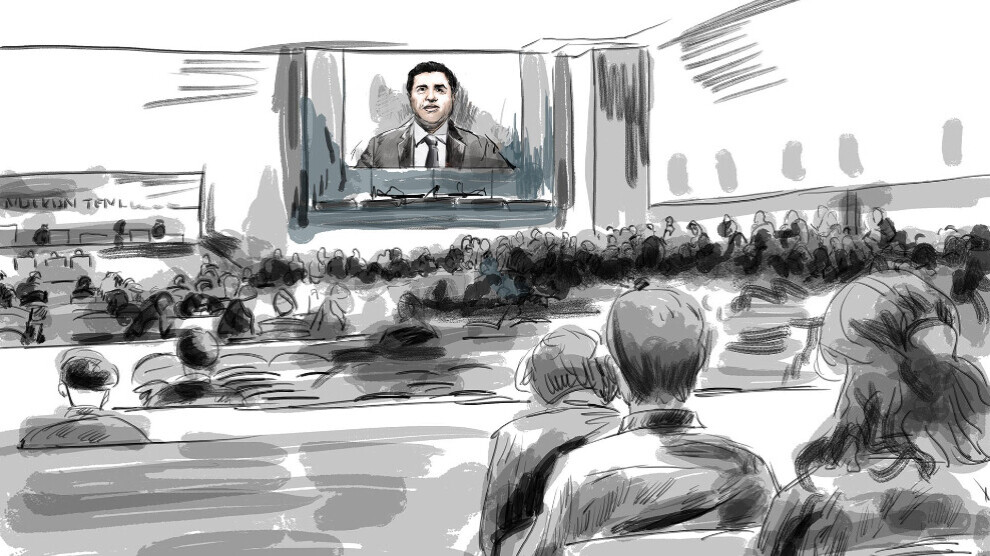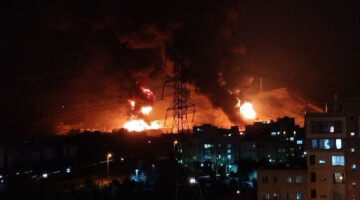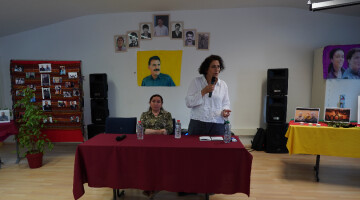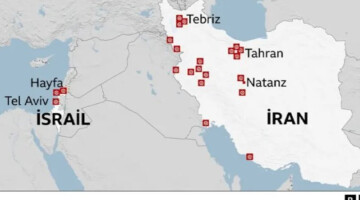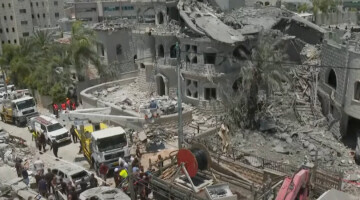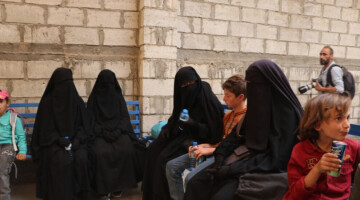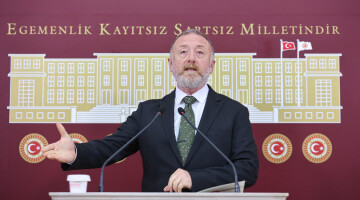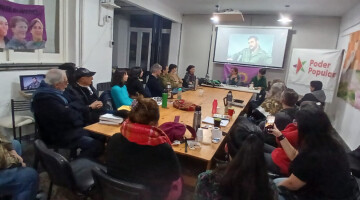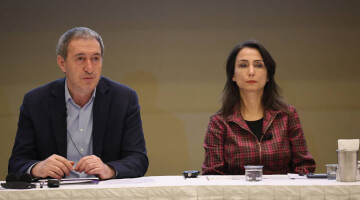The hearing in the Kobanê Case, in which 108 people, including 18 prisoners, are on trial, is being held by Ankara 22nd High Criminal Court at Sincan Prison Campus. Peoples' Equality and Democracy Party (DEM Party) MPs and members of the Association of Lawyers for Freedom (ÖHD) as well as many people followed the hearing.
Jailed politicians Sebahat Tuncel, Günay Kubilay, Ali Ürküt, Nazmi Gür and Bülent Parmaksız are present in the courtroom, while other politicians are connected to the hearing via Video Conferencing System (SEGBİS).
The hearing continued with the defense of former HDP Co-Chair Selahattin Demirtaş on the merits.
Referring to the proceedings against him and the combined indictments, Demirtaş said, "Let's discuss how addressing Abdullah Öcalan as 'Mr.’ is praising a criminal. Whether a person is accepted as a leader by the people is a matter of political criticism and discussion. But it cannot be a matter of the judiciary. Not me, millions of people have declared Öcalan as the leader of the people."
'We are here because we are Kurds'
Demirtaş continued:
"What we mean when we say 'Kurdish People's Leader, Mr. Abdullah Öcalan' in our speeches is that we embrace his initiatives for peace. Öcalan has been bringing initiatives for peace since '93. We are talking about a person who is acknowledged as an interlocutor by the state and who state officials address as 'Mr. Öcalan' when they meet. A strange lynching culture has developed in Turkey. It is a shame not to address someone as 'Mr.' in English. When I mentioned the name of Öcalan in my speeches abroad, the translator would translate it as 'Mr. Öcalan'. It is about the character of the language. The reason why this has turned into a crisis is the Kurdish issue. This can be a political criticism; we would respect it. Just because we say 'Mr. Öcalan' does not mean that everyone will accept it, but the prosecutor cannot make this a subject of accusation.
Let us decide who to call 'Mr.'. Millions of people campaigned over and over again, demanding 'meet him and resolve our problem'. It is a traumatic case for prosecutors and the courts to criminalize this. Is this what a self-confident state deals with? 'Why did you say 'Mr.'? Why did you say Kurdish People's Leader?' There is a huge problem that is centuries old and instead of discussing its content, they ask 'Why did you say 'Mr.’? These expressions are completely within the scope of freedom of expression.
Now some people say 'Demirtaş talks about the Kurds and Kurdistan'. I am defending here what I have already been talking about for years. Some may be hearing it for the first time, but this is not the first time we have said’ Kurd’ and ‘Kurdistan’. I am on trial here because I said ‘Kurdistan’, because I said ‘Kurd’. I am on trial for 46 speeches, I am on trial for nearly 50 speeches. We are on trial because we are Kurds, because we say Kurdistan.
I don't want to express here what the government officials said about Öcalan during the resolution process, because I don't get my legitimacy from them or from there. But it is the height of hypocrisy...What praise they gave Öcalan! When I met him (Öcalan) in İmralı, I called him the president. Öcalan is working for peace. I have witnessed this. He thinks about the future of this country more than many nationalists and racists in this country.
'Mazlum Doğan is a legendary name of resistance'
I am accused of making a remark mentioning Mazlum Doğan. Newroz is associated with Mazlum Doğan because he protested against the torture of Esat Oktay during Newroz. Mazlum Doğan has become legendary. He is described as a modern Kawa. Mazlum Doğan is the legendary figure of the '80s who resisted torture. If it is a crime for me to say that Mazlum Doğan's resistance against torture is respectable, to defend the opposite is to defend torture, to defend Esat Oktay. Why is the prosecutor bothered by my defense of Mazlum Doğan? What exactly is the prosecutor defending? Does he mean that the Republic of Turkey can also torture? Beg your pardon, but thousands of people were tortured during that period. It was that torture that led the PKK to take up arms. It was that torture that drove people to the mountains, not us.
How will the truth be understood? Nobody is telling it. The Kurds themselves are telling their own problems. We are telling it, the socialists who act with us are telling it. Even the socialists and communists outside of us are not telling. Now that we can't tell, others don't tell, how will the truth be understood then? How will the problem of weapons and violence be overcome without understanding the truth? These discussions do not belong in courtrooms.
It is these policies of the state that have driven the PKK to the mountains. And it is the state that needs to step back from these policies.
My words 'Greetings to President Apo' were made the subject of accusation. The prosecutor may not know, but I was already meeting President Apo face to face and conveying greetings directly."

